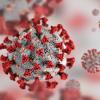
The Economic Frontiers Program investigated different aspects of the Covid-19 pandemic and pandemics in general and published their work in a wide range of scientific journals.
On the occasion of the COVID-19 pandemic, but extending to other modern disease contexts, in a collaborative effort with colleagues from the Harvard School of Public Health and the Vienna University of Economics of Business, EF researchers have explored and interpreted the extant literature on the containment and macroeconomic impacts of a range of modern infectious diseases, distilling insights that include lessons learned from COVID-19 experience but also stretch to contexts beyond.
Bloom, D.E., Kuhn, M., & Prettner, K. (2022). Modern Infectious Diseases: Macroeconomic Impacts and Policy Responses. Journal of Economic Literature 60 (1) 85-131. 10.1257/jel.20201642.
Other research on Covid-19 related topics in the Economic Frontiers Program can be clustered into four categories.

Vaccine emergence and resistance
With the ongoing SARS-CoV-2 pandemic an issue of controlling the evolution and spread of novel variants is becoming very important. Yuliya Kulikova together with colleagues investigated the three main factors of particular epidemiological concern: higher infectivity, immunogenic drift (vaccine resistance), and increased virulence. In a new project, they also investigated how complex vaccination strategies can prevent the emergence of vaccine resistance.






